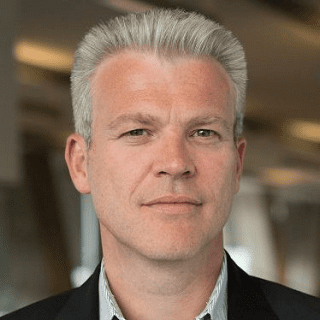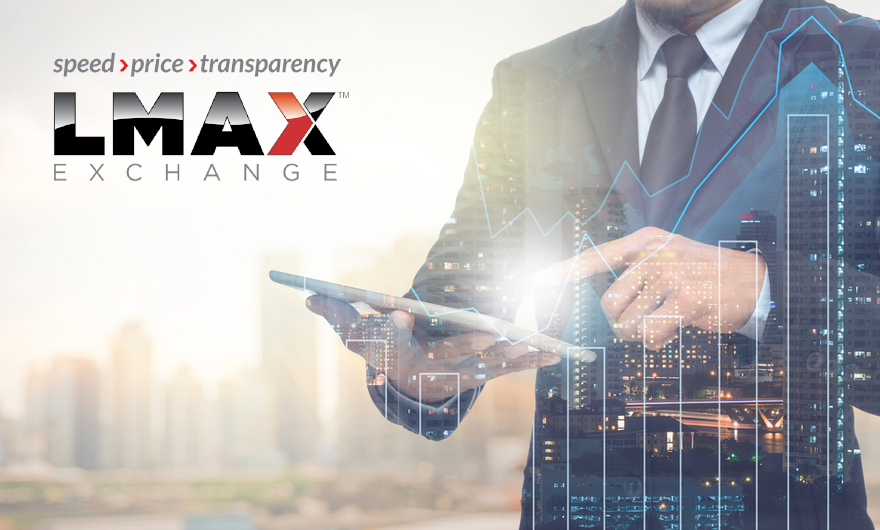LeapRate Exclusive Interview… LMAX Exchange Group’s 2018 financials report has gone out last month, releasing excellent growth and record financial performance for the year ended 31st December 2018.

David Mercer
It has been almost two years since our last interview with David Mercer, CEO of LMAX Exchange. What has changed in the company since then, what are his views on crypto and regulations… We are pleased to speak today on these and more topics with him.
LR: Hi, David, thank you for joining LeapRate today. Can you let our readers know a bit more about LMAX Exchange Group? What separates you from the other institutional FX venues in the industry and what are your goals?
David: What differentiates LMAX Exchange Group from the market is our industry leading, proprietary technology which is the key enabler of the exchange execution model. We have invested $150m in technology over the past seven years. We are also 95% management owned and the only independent operator of institutional exchanges for FX and crypto currency trading, in an industry which has been engulfed by consolidation.
The Group’s portfolio includes LMAX Exchange (FCA regulated MTF), LMAX Global (FCA regulated Broker) and LMAX Digital, the institutional crypto currency exchange. The Group has grown exponentially in the last few years, in large part because the market has firmly accepted that a fair, transparent, central limit order model works and that there is a real need for an independent exchange in the FX industry.
Our goals are to continue growing, to increase our revenues, to increase our global footprint, and probably most importantly – to become more relevant in the institutional space.
LR: Have the recent changes in the industry, which were driven by regulators’ restrictions, been good or bad?
David: Strong markets are forged by good regulation; the ESMA restrictions, MIFID II and Brexit are changes which all market participants just need to adapt to. It’s a fact of life that regulation changes, governments change, taxation changes and we need to be agile and receptive to adapt and maintain the level of service our clients need. For example, ESMA resulted in better capitalised brokers and better, more stringent suitability tests. Yes, the leverage was decreased significantly and that has affected the business of our retail broker clients. So we need to adapt and remain relevant to these clients, which is a challenge the entire industry faces. You can’t just sell the same product as you did in 2016 and 2017.
Likewise, in the institutional FX space – following the Global Code – we are seeing much more disclosed bilateral trading taking place. I think that’s an unintended consequence of the Code. This is why we need more transparency, more clarity and a better experience for all customers.
We have to come up with new ideas, new services and new products to offer our clients, as the market structure is changing. For example, what we see right now is that a lot of the smaller brokers are disappearing, so the market needs the bigger players to succeed, because the FX industry is not going anywhere, FX trading isn’t going away, so it’s up to businesses such as ours to adapt fast.
Looking ahead, I think we live in very interesting times for the FX marketplace. The market structure is evolving rapidly.
LR: What do you think about the practice of ‘Last Look’?
David: It’s clear that I don’t believe in Last Look. I believe FX trading will be more efficient without Last look; this is a practice that doesn’t exist in any other asset class. Unfortunately, the Global Code has legitimised Last Look and has put some rules around it. All I can do is show my customers that their cost of trading is lower without Last look. All their metrics are better and the key metric, the cost of trading, and the efficiency of their trading is better without Last look.
I believe that 10 years from now, Last Look will not exist in this industry. But we need to be pragmatic, as it exists today, and will exist for the next 3 years, for example. We need to inhabit and exist in a marketplace where there’s Last look.
LR: You’ve taken many risks with your Hong Kong and Japan expansion, and Asia Pacific as a whole. Have your risks paid off already?
David: In the industry we operate in, every day we take an element of risk – it’s a fact of life. What’s important is that the risks are tolerable and that you get more right than you get wrong. That’s the reality: if you make 10 trades, that’s 10 risks – and you’ll probably get 3 or 4 wrong and maybe 3 or 4 will be ok. It’s important you capitalise on the remaining 2 or 3 which you get absolutely right. That’s the nature of the game, not just in our industry but across the capital markets universe.
We now have 11 offices worldwide and opening each required taking an element of risk. Take our Tokyo office, undoubtedly a success but also required taking on a tolerable amount of risk and patience – it takes time to become an “overnight success”. We service the biggest brokers in the world in Japan and that’s purely led by our technology. We have a niche quality salesforce, we have a product that the Japanese market needs – so undoubtedly, it’s a success.
In comparison, it’s fair to say our Hong Kong office made less of an impact and although it’s still an absolute necessity to have an office there, we don’t need a regulated broker, given we base our Asian operations out of Singapore.
Singapore is our regional hub. Our former COO and now Managing Director for Asia Pacific, Scott Moffat, has been instrumental in strengthening the company’s position in the region and building upon the existing presence.
So when you look at the bigger picture, Asia Pacific is a huge success for us, as you can see in the results. From day one the customers in Asia Pacific have reacted really well to the LMAX Exchange offering. We are very happy with it, we are even more committed to the region now, and we’re continuing to invest more there.
LR: You’ve recently launched LMAX Digital. Let’s talk about crypto a bit. Let us know your views on crypto institutionalisation. What would the crypto market be this year? Is there a future for it or is it just, like some say, a pink unicorn?
David: Let’s start with the positive. Digital assets, cryptocurrencies and blockchain are here to stay. Distributed Ledger Technology will revolutionise capital markets. And will do that from the back end, from the payments, settlement, and reconciliation stand point. It will change every part of capital markets.
Following demand from our institutional FX clients who asked if we would create a venue where they could trade cryptocurrencies with likeminded participants, we launched LMAX Digital to be part of the revolution and to bring institutional grade trading infrastructure into this market. Although it is still early days, we have been delighted with the positive response. In just under a year we have over 3 million trades completed and over 150 institutional clients trading on LMAX Digital. We currently offer the five most liquid coins BTC, ETH, LTC, BCH & XRP – all against both USD and JPY, as well as ETH/ BTC, so 11 currency pairs in total.
LMAX Digital has been the fastest growing out of all LMAX Exchange Group’s five exchanges and broke even after just five months of operation.
As for the broader market Bitcoin, or Ethereum, or Litecoin, or EOS, or Dash… these coins or tokens are all scientific experiments right now. And it’s very exciting. There will be many forks, many evolutions, many improvements yet to come. The important thing is to let the market develop, explore, and it will get better – just like the internet did – started as a niche and evolved to its current omnipresence.
Blockchain is also in a nascent stage today, but we are long term believers. 2018, 2019, 2020 – I don’t know exactly when crypto trading will get bigger, as we need institutional money to come. We’re in the third wave of crypto trading today – the first wave was from the evangelists, creators, scientists; the second wave was retail; the third wave is institutional. That third wave will take time. We need the global banks to start offering credit and we need more banks to trade crypto currencies. The main barriers at the moment are trust, security, availability of credit offered from top tier banks and you don’t fix those overnight.
The good news is that the crypto world is evolving rapidly – it doesn’t have to wait for the banks. They will eventually come, but in the meantime, the blockchains are evolving for the better every day.
We are very fortunate to live in times like these and we need to continue to embrace new technologies.
